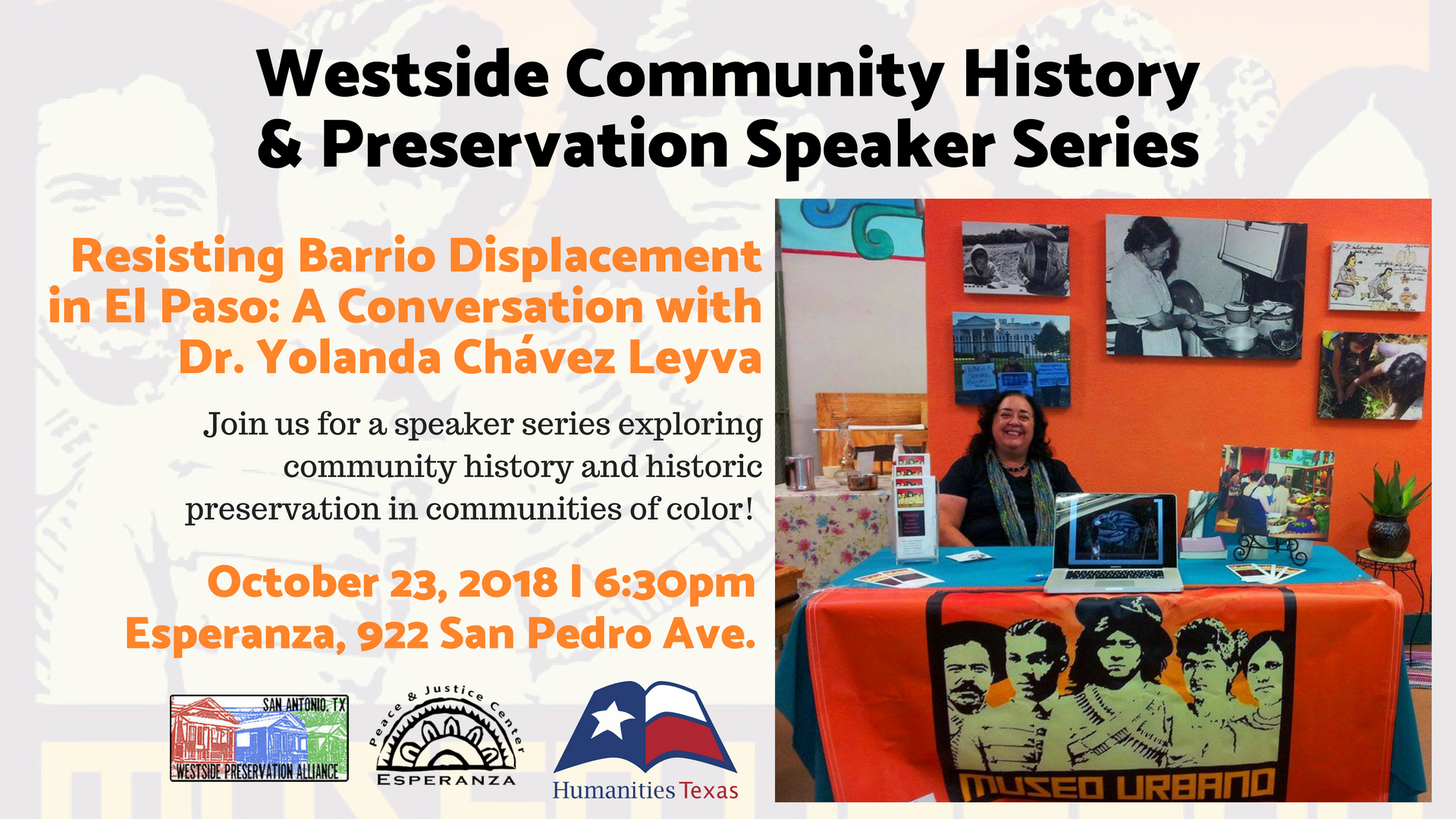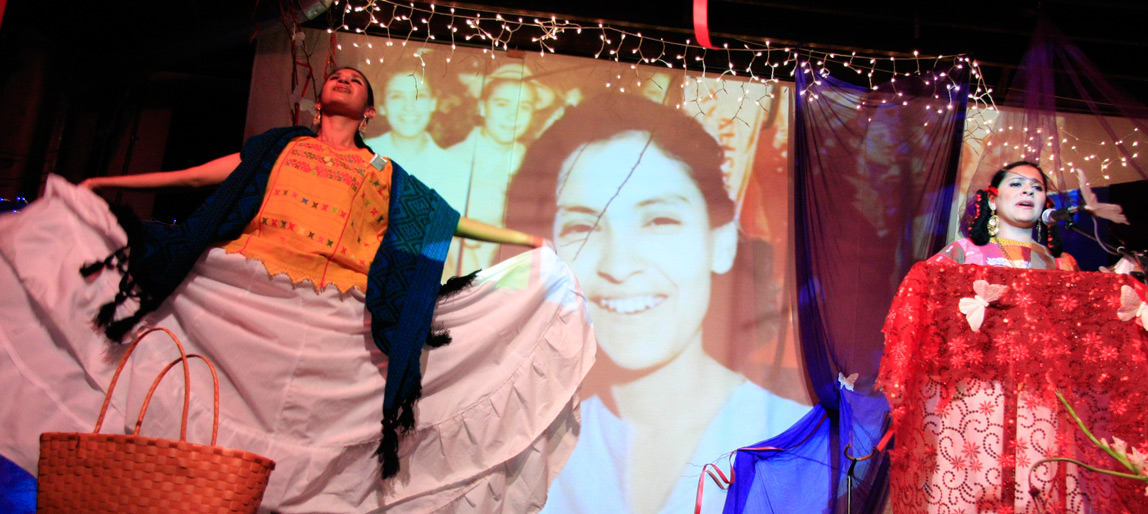- This event has passed.
Resisting Barrio Displacement in El Paso: A Conversation with Dr. Yolanda Chávez Leyva
Tuesday, October 23, 2018 @ 6:30 pm - 8:30 pm
Event Navigation

Resisting Barrio Displacement in El Paso: A Conversation with Dr. Yolanda Chávez Leyva
Join the Westside Preservation Alliance and the Esperanza for the second event of our Westside Community History & Preservation Speaker Series! There will be 2 more speakers in this series throughout the rest of 2018.
This series will explore community history and historic preservation in communities of color!
El Paso is a city with deep roots on both sides of the Rio Grande. Combining border history with public history to create “border public history,” Dr. Leyva launched Museo Urbano in 2010 to share the El Paso history with the general public and as a tool for community preservation. She will detail how her border public history work has embraced historic preservation to use buildings as artifacts and to bring community members’ stories to a broader audience. In addition, she will give a synopsis of the ongoing struggle to save Barrio Duranguito and its parallels to the earlier struggle to save Segundo Barrio – two of El Paso’s oldest Mexican neighborhoods.
ABOUT DR. YOLANDA CHAVES LEYVA
Dr. Yolanda Chávez Leyva is a Chicana historian and writer who was born and raised on the border. She specializes in border history, public history, and Chicana history and is the founding director of the Borderlands Public History Lab and co-founder of Museo Urbano. She also directs the Institute of Oral History. She served as the Chair of the Department of History (2010-2015) and is an Associate Professor. She has spent her life listening to and now documenting the lives of people who live on la frontera. Her life calling is that of temachtiani, Nahuatl for teacher, and she works to learn from the huehuehtlahtolli, the ancestral teachings of ancient Mexico. Dr. Leyva is currently revising a manuscript titled, Cruzando la Linea: Mexican Children on the Texas-Mexico Border, which investigates the ways in which the presence of children has shaped the border historically. She has published numerous articles on Chicana, lesbian and border history.
===
This program was made possible in part with a grant from Humanities Texas, the state affiliate of the National Endowment for the Humanities.
====


